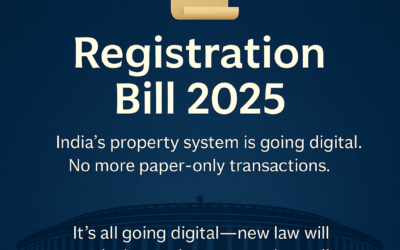The United Kingdom’s new immigration white paper, Restoring Control over the Immigration System, came into effect on 22 July 2025, marking the first phase of sweeping reforms designed to reduce net migration, strengthen border integrity, and shift the balance in favour of highly skilled talent. Spearheaded by the Home Office under Prime Minister Sir Keir Starmer, this 82-page blueprint lays out radical changes to work, study, settlement, family, and asylum routes, with particularly profound implications for Indian students, professionals, and job seekers eyeing opportunities in Britain GOV.UKThe Times of India.
The Context: Record-High Migration and a New Direction
Between 2019 and 2023, UK net migration quadrupled from around 224,000 to over 900,000, driven in part by COVID-era visa extensions and robust international recruitment. With India now the UK’s largest source of migrants, the government has prioritised curbing overall numbers while still attracting the “brightest and best” global talent. This white paper signals a strategic pivot: encouraging domestic training, tightening visa eligibility, and instituting a data-driven Labour Market Evidence Group to guide future policy Financial TimesGOV.UK.
Raising the Bar for Skilled Workers
A cornerstone of the reforms is the restoration of the skill threshold for the Skilled Worker visa from Regulated Qualifications Framework (RQF) Level 3 (A-Level equivalent) back to RQF Level 6 (Bachelor’s degree equivalent) or above. This change, effective 22 July 2025, is accompanied by a substantial increase in minimum salary requirements and the abolition of the Immigration Salary List—an earlier discount system for lower-paid roles. Together, these measures ensure that only graduate-level positions attract overseas talent, signalling a clear shift towards prioritising high-value jobs and domestic workforce development GOV.UKRedditIndiatimes.
Narrowing Occupations and Safeguarding Social Care
In addition to raising skill levels, the white paper reduces the list of occupations eligible for sponsorship. Roles not on the new Shortage Occupation List will face time-limited entry permissions until the Migration Advisory Committee (MAC) reviews medium-skilled job needs beyond 2026. Crucially, the social care visa route for adult care workers will close to new applications from abroad, with a transition window until 2028 for existing visa holders to switch or extend in-country, underscoring the government’s drive to invest in homegrown care provision GOV.UKHouse of Commons Library.
Redefining the Student Experience
For international students, the reforms introduce stricter sponsor compliance and an action plan regime for at-risk institutions, including caps on new recruits. Most notably, the post-study work visa which was previously two years for undergraduate and three years for doctoral graduates will be capped at 18 months, down from two years for all graduates. This curtailment, paired with a 6 % levy on international tuition fees (for comparison; details vary), aims to balance the financial benefits of student visas with concerns about overstays and “visa tourism” GOV.UKIndiatimes.
UK Student Visa Guide – Your handbook on applying, compliance tips, and post-study options.
Streamlining Family and Settlement
The white paper also tackles what it calls “over-complex” family and private life routes, seeking to clarify the government and Parliament’s role in defining rights to remain in the UK. In parallel, the standard settlement (Indefinite Leave to Remain) qualifying period will double from five to ten years, and future citizenship criteria will move to an “earned settlement” points-based model that rewards economic and community contributions GOV.UK.
Empowering the Very Highly Skilled
While curbing lower-skilled routes, the UK is simultaneously expanding pathways for top talent. The white paper commits to growing the Global Talent visa programme, increasing places for research interns, and reviewing the Innovator Founder and High Potential Individual routes. By fast-tracking exceptional scientists, designers, and entrepreneurs, the UK aims to remain globally competitive in sectors such as life sciences, digital technology, and creative industries GOV.UK.
Tougher Measures to Prevent Abuse
Recognising abuses in the system, the white paper proposes stricter conditions for sponsors—schools, universities, and employers along with financial penalties and sanctions for non-compliance. It also introduces new intervention powers for asylum seekers, including expedited removal processes where post-arrival asylum claims lack substance. For foreign national offenders (FNOs), deportation thresholds will be recalibrated to factor in the seriousness of offences beyond prison sentences GOV.UK.
Higher Language Requirements
To ensure migrants contribute fully, English language requirements across multiple visa categories will rise to CEFR B2 (Independent User), replacing the current B1 standard. Dependants will also face higher language expectations, reflecting the government’s emphasis on integration and reducing reliance on translation and interpretation services Dentons.
New Financial and Compliance Pressures
Employers can expect an uplift in the Immigration Skills Charge, with a 32 % increase in fees (from £1,000 to £1,320 annually per worker). Moreover, surcharges for healthcare and visa application fees will continue to rise, increasing the cost of sponsoring migrant workers. These financial measures aim to shift employer focus toward domestic recruitment and training programmes Dentons.
What It Means for Indian Students
With India supplying the highest share of UK student visas (nearly 25 % of the total), the reduction in post-study work opportunities represents a significant downgrade. Graduates now face a shorter window to seek sponsorship, requiring early engagement with UK employers or alternative pathways like the Graduate Trainee or Global Talent routes. Institutions with high Indian enrolment will need robust compliance processes to avoid sponsor sanctions GOV.UK.
Impact on Indian Professionals
For Indian professionals on the Skilled Worker route especially those in IT, engineering, and finance, the raise to RQF 6 and salary threshold increases may make switching or extending visas more challenging. Roles that once qualified under A-Level equivalents may no longer meet the criteria, compelling companies to upskill domestic staff or sponsor fewer overseas workers. This change could drive talent to alternative markets such as Canada and Europe GOV.UKFinancial Times.
Consequences for Job Seekers
Indian job seekers without sponsorship prospects now face higher entry barriers. The abolition of the Immigration Salary List and removal of lower-skilled routes limit options for entry-level positions. Instead, aspirants may explore short-term student visas or Global Talent schemes, but these demand specialist credentials or significant capital. Navigating the new Points-Based System will require strategic planning to accumulate the necessary skills and income thresholds GOV.UK.
How Businesses Should Prepare
UK employers anticipating future recruitment must conduct a skills audit, invest in domestic training, and develop robust sponsor compliance teams. Partnerships with local colleges and apprenticeship programmes can offset reliance on overseas labour, while clear records and audit trails will mitigate the risk of penalties under the strengthened sponsor regimes GOV.UK.
The white paper promises further asylum and border security reforms later this year, alongside consultation on expansion of earned settlement and citizenship. With many changes set to roll out across this Parliament, the UK’s immigration landscape is entering an era of tighter control, higher standards, and selective openness to global talent.
The UK’s “Restoring Control” white paper fundamentally reshapes immigration, balancing a dramatic reduction in net migration with targeted attraction of skilled talent. While the new measures are raising skill and salary thresholds, curbing post-study stays, and recalibrating settlement, present challenges for Indian students, professionals, and job seekers, they also underscore the UK’s commitment to high-value migration. As these reforms take hold, careful navigation of the new system, proactive skill development, and strategic employer engagement will be essential for all stakeholders.




